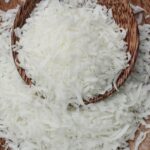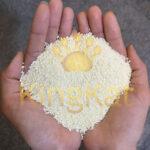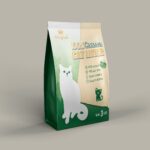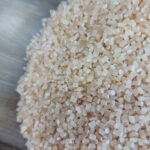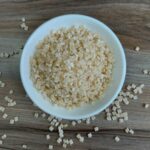CASHEW NUT SHELL OIL

Stabilization is a critical aspect of yogurt production, ensuring consistency, texture, and shelf life. One of the most effective stabilizers used in dairy processing today is modified tapioca starch. This ingredient offers several advantages over traditional stabilizers like gelatin, pectin, and other starches. Below are seven key benefits of using modified tapioca starch in yogurt production.
Table of Contents
Toggle1. Improved Viscosity and Texture
Modified tapioca starch enhances the viscosity of yogurt, creating a smooth, creamy texture without affecting its natural taste. This is especially beneficial for low-fat and fat-free yogurts, where starch helps mimic the richness of full-fat versions.
2. Excellent Stability Against Syneresis
Syneresis, or the unwanted separation of whey, is a common issue in yogurt production. Modified tapioca starch acts as a water-binding agent, significantly reducing whey separation and improving the product’s overall consistency.
3. Heat and Acid Resistance
During the yogurt-making process, ingredients are exposed to high temperatures and acidic conditions. Modified tapioca starch is designed to withstand these challenges, ensuring stability under heat and acidic environments without breaking down or affecting the final texture.
4. Extended Shelf Life
Yogurt manufacturers aim for products that stay fresh for longer without compromising quality. The moisture-binding properties of modified tapioca starch prevent texture degradation over time, maintaining the yogurt’s structure and taste for an extended period.
5. Clean Label and Allergen-Free Advantage
Unlike some stabilizers like gelatin (which is animal-derived) or modified corn starch (which may contain allergens), tapioca starch is naturally gluten-free, non-GMO, and plant-based, making it an excellent choice for clean-label yogurt formulations.
6. Cost-Effective Solution
Modified tapioca starch provides a cost-effective alternative to expensive hydrocolloids like pectin or gelatin. It allows manufacturers to optimize production costs while maintaining premium quality.
7. Enhanced Mouthfeel for Premium Yogurts
Consumers seek rich, indulgent textures in yogurt products. Modified tapioca starch helps achieve a silky, full-bodied mouthfeel, making it ideal for both traditional and plant-based yogurts.

Conclusion
Incorporating modified tapioca starch in yogurt processing is a game-changer, providing improved texture, stability, and cost efficiency while meeting the growing demand for clean-label ingredients. As the dairy industry evolves, this versatile starch will continue to play a crucial role in enhancing yogurt products worldwide.



